Explore Houston University of Texas’s Eligibility Criteria for Students Worldwide
High School Diploma, GED or equiv. International Education
144 Hours
4 Year (Self-Paced) Program
24
The course explores philosophic and artistic heritage of humanity expressed through a historical perspective on visual arts, music, and literature. Topics include myth, literature, art, music, television, cinema, and the theater. Also discussed are provocative issues in the humanities - religion, morality, happiness, death, freedom, and controversies in the arts.
Social and Cultural Geography considers why geography matters to the analysis and understanding social relations, cultural identity and social inequality. Course examines how social life is structured at a variety of scales with respect to ethnicity, industries, services, urban patterns, and resources of world as a whole.
English Composition provides you with rhetorical foundations that prepare them for academic and professional writing. You will learn the strategies and processes that successful writers employ as you work to accomplish specific purposes. You will develop skills in writing unified, coherent, well-developed essays using correct grammar and effective sentence structure.
College Algebra provides an overview of the fundamental concepts of algebra: an understanding of the general concepts of relation and function; and the ability to solve practical problems using algebra.
World Religions course offers the broadest coverage of world religions as they exist today; helping you understand the ideology behind the many religions that strive today. While it is impossible to cover all religions, it does cover those of the vast majority of people.
Evenly balanced between theory and applications, this course shows you how to establish an ethical theory and how to apply it to a range of specific moral issues. This course examines ethical problems in such areas as mercy killing, personal relations, business, sexuality, medicine, and the environment.
This course introduces the origins and historical development of art. Emphasis is placed on the relationship of design principles to various art forms including but not limited to sculpture, painting, and architecture. Upon completion, you should be able to identify and analyze a variety of artistic styles, periods, and media.
This course provides the mathematical foundation for an introductory calculus course. In addition to a brief review of basic algebra, the course covers equations and inequalities; functions, models, and graphs; polynomial and rational functions; exponential and logarithmic functions; trigonometric functions; and trigonometric identities and equations.
This course is an introductory study of the human body, including the basic structure and function of the major organ systems (nervous, endocrine, circulatory, reproductive, etc.) and the effects of diet, exercise, stress and environmental change on human health.
World History course present the big picture, to facilitate comparison and assessment of change, and to highlight major developments in world's history. This course emphasizes the global interactions of major civilizations so that you can compare and assess changes in the patterns of interaction and the impact of global forces.
Teaching is a profession that can yield something amazing when the right ideas and beliefs are implemented in the classroom. The purpose of this course is to induce you to the concept of teaching as a profession. The course presents various learning methods and role of Education in 21st Century.
The course introduces you to the concepts of differentiated instruction, differentiating planning, differentiated assessment and differentiated learning experiences. The course also includes grouping, differentiation, and enrichment of gifted children.
The course introduces you to the concepts of physical development, cognitive development, emotional and social development and physical and cognitive development. The course also presents tools for learning in real time and online learning activities.
The purpose of this course is to enable you to think critically about contemporary education issues, so they can develop creative solutions to difficult problems. This will be accomplished by gaining an understanding of the history of these issues and problems.
This course explores the underlying principles and philosophical foundations of teaching and education and examines how teachers function on the basis of a set of assumptions and beliefs regarding what they teach, how they teach, and to what end they teach.
This course prepares educators to use, evaluate, and integrate a variety of computer-based programs into the classroom. The course also covers use of graphic tools in education, how technology is used to provide education to special children and issues and challenges of technology in education.
This course explains the cognitive, linguistic, personal, social, and moral development of individuals as well as individual and group differences. This lesson also describes behaviorist and social cognitive views of learning, intrinsic and extrinsic motivation, and informal and formal assessments.
The course teaching for special fields provides you with a comprehensive overview of major aspects of the field of special education. This course emphasizes how students with special needs can succeed in the general education classroom with the assistance of the teacher and other members of the team.
This course focuses on struggling students and emphasizing classroom-based, teacher-driven approaches to assessment and remediation. Expanded coverage of portfolio assessment, lexiles and guided reading levels, running records, and developmental spelling stages, emergent literacy assessments, assessing and teaching students with limited English proficiency is also included.
This course guides you as you learn to become proficient at applying the computer to solve problems; to infuse the computer into the curriculum in order to help you do the same; and to integrate technology into their professional, academic, and personal lives in useful and meaningful ways.
This course offers you the foundations of education a perspective arguing American society has undergone a series of profound social, cultural, and political changes since 1960s that have redefined the meaning of teaching, learning, and schooling in a postmodern culture. It directs you toward most vital issues in contemporary education.
This course offers the most current insight on thinking processes, on reading and writing as language, and on the importance of the affective domain. It provides an overview of phonemic awareness, phonics, and word recognition, decoding, reading comprehension and vocabulary.
Designed to apply learning theory and principles to presentation of learning, this course shows how learning principles work in both animals and people. Throughout the course, you would learn how study of learning helps solve practical problems, impact of habituation and classical conditioning. Course explores human memory, its functions and processes.
Through this course you will gain a thorough understanding of the fundamental role that reading and writing play in content-area learning. The course offers step-by-step approaches to gauge student literacy, build vocabulary, and implement instruction that improves comprehension, encourages critical reading, supports writing for learning, and facilitates collaboration for literacy development.
| Tuition Fee Breakdown | Cost |
|---|---|
| BACHELORS DEGREE | $31,680 |
| Medical Insurance | $0.00 |
| Personal Expenses | $0.00 |
| Study Materials | $0.00 |
| Food Cost | $0.00 |
| Total Tuition Fee | $31,680 |
At Houston University of Texas, we champion the convergence of affordability and opportunity. Our steadfast commitment to accessible education guarantees that high-quality learning is accessible to all. By eliminating financial obstacles, we grant students the freedom to thrive without the burden of overwhelming tuition costs, empowering them to carve out a bright and promising future.

| Topics Covered in This Course: | |||||||||||||||||||||||||||||||||
|
| Topics Covered in This Course: | |||||||||||||||||||
|
| Topics Covered in This Course: | |||||||||||||||||||||||||||||||||||
|
| Topics Covered in This Course: | |||||||||||||||||||||||||||||||||
|
| Topics Covered in This Course: | |||||||||||||||||||||||||||||||
|
| Topics Covered in This Course: | |||||||||||||||||||||||||||||||||||||
|
| Topics Covered in This Course: | |||||||||||||||||||||||||||||||||||||
|
| Topics Covered in This Course: | |||||||||||||||||||||||||
|
| Topics Covered in This Course: | |||||||||||||||||||||||||||||||||
|
| Topics Covered in This Course: | |||||||||||||||||||||||||||||||||||||||||||||||||||||||||||||||||||
|
| Topics Covered in This Course: | |||||||||||||||||||||||||||||||
|
| Topics Covered in This Course: | |||||||||||||||||||||||||||||||||
|
| Topics Covered in This Course: | |||||||||||||||||||||||||||||
|
| Topics Covered in This Course: | |||||||||||||||||||||||||||||||||||||
|
| Topics Covered in This Course: | |||||||||||||||||||||||||
|
| Topics Covered in This Course: | |||||||||||||||||||||||||||||
|
| Topics Covered in This Course: | |||||||||||||||||||||||||
|
| Topics Covered in This Course: | |||||||||||||||||||||||||||||||||||||
|
| Topics Covered in This Course: | |||||||||||||||||||||||||||
|
| Topics Covered in This Course: | |||||||||||||||||||||||||||||
|
| Topics Covered in This Course: | |||||||||||||||||||||||||||||||||
|
| Topics Covered in This Course: | |||||||||||||||||||||||||||
|
| Topics Covered in This Course: | |||||||||||||||||||||||||||||||
|
| Topics Covered in This Course: | |||||||||||||||||||||||||||
|

We specialize in providing online education solutions for students worldwide who are balancing studies and professional commitments. Our mission is to make quality education accessible to everyone, regardless of location or schedule constraints
Discover More
Get Substantial Career Growth With Our Accredited Degree Programs.